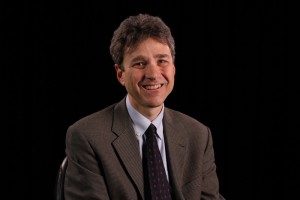Leading Criminal Law Scholar David Sklansky Joins Stanford Law School Faculty
STANFORD, Calif., June 10, 2014 — Stanford Law School today announced that criminal law expert David Sklansky, currently the Yosef Osheawich Professor of Law at Berkeley Law School, will join the Stanford Law School faculty as professor of law, effective summer 2014.

Sklansky is an experienced teacher and practitioner, with expertise in criminal law, criminal procedure, and evidence. Prior to his time in academia, he worked as an assistant U.S. attorney in Los Angeles, where he specialized in white-collar fraud prosecutions and also served as special counsel to the independent review panel appointed to investigate the Los Angeles Police Department’s Rampart Division scandal.
“David Sklansky is a rare talent. As a scholar, he has influenced our thinking because he combines deep experience in and understanding of the key actors and institutions in the criminal justice system with the ability to identify where that system goes wrong, and how it could go right. He is also an astonishing teacher and mentor to his students,” said M. Elizabeth Magill, Richard E. Lang Professor of Law and Dean of Stanford Law School. “We are overjoyed that he will now call Stanford Law School home.”
A prolific scholar, Sklansky is the author of a well-regarded evidence casebook,Evidence: Cases, Commentary, and Problems, and he has written extensively about criminal procedure and policing. Other recent publications include “Evidentiary Instructions and the Jury as Other,” Stanford Law Review (2013); “Crime, Immigration and Ad Hoc Instrumentalism,” New Criminal Law Review (2012); “Private Police and Human Rights,” Law & Ethics of Human Rights (2011); “Hearsay’s Last Hurrah,” Supreme Court Review (2009); and “Is the Exclusionary Rule Obsolete?” Ohio State Journal of Criminal Law (2009).
“For two decades David Sklansky has been one of the national superstars in
the fields of Criminal Law, Criminal Procedure, and Evidence,” said Robert Weisberg, Edwin E. Huddleson, Jr. Professor of Law. “After serving as a federal prosecutor, he brought his rich knowledge of criminal justice institutions to the academy, where he has done innovative research and writing on topics including the political science of policing, the regulation of jury deliberations, the application of the Fourth Amendment to new surveillance technologies, the relationship between criminal justice and immigration laws, and the state of our hearsay laws.”
An admired teacher, Sklansky has won campus-wide Distinguished Teaching Awards at both UCLA and Berkeley. Sklansky was also a visiting professor at SLS in 2011.
“I’m thrilled to be joining the Stanford Law School faculty, which includes so many scholars and teachers I have admired for years,” Sklansky said. “Having taught at the law school as a visitor, I know how extraordinarily well it combines scholarly excellence with a deep commitment to training students who will make a difference. I’m particularly excited by the important, cutting-edge work the school is doing in criminal justice. I’m looking forward to the opportunity to be part of that.”
More on David Sklansky
Prior to his faculty appointment at Stanford Law School, Sklansky was a member of the Boalt Law faculty (2005-present) and UCLA School of Law faculty (1994-2005). He also practiced labor law at Bredhoff & Kaiser (1987-1994) and clerked for Judge Abner Mikva of the U.S. Court of Appeals for the D.C. Circuit and for U.S. Supreme Court Justice Harry Blackmun. Sklansky holds a JD (1984) from Harvard Law School and AB from UC Berkeley (1981).
About Stanford Law School
Stanford Law School is one of the nation’s leading institutions for legal scholarship and education. Its alumni are among the most influential decision makers in law, politics, business, and high technology. Faculty members argue before the Supreme Court, testify before Congress, produce outstanding legal scholarship and empirical analysis, and contribute regularly to the nation’s press as legal and policy experts. Stanford Law School has established a new model for legal education that provides rigorous interdisciplinary training, hands-on experience, global perspective, and focus on public service, spearheading a movement for change.
